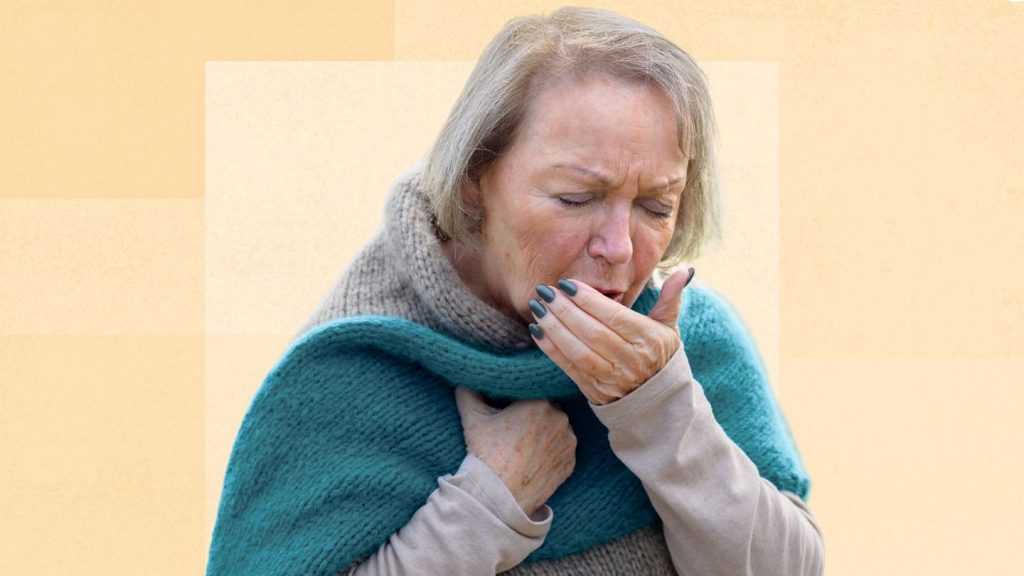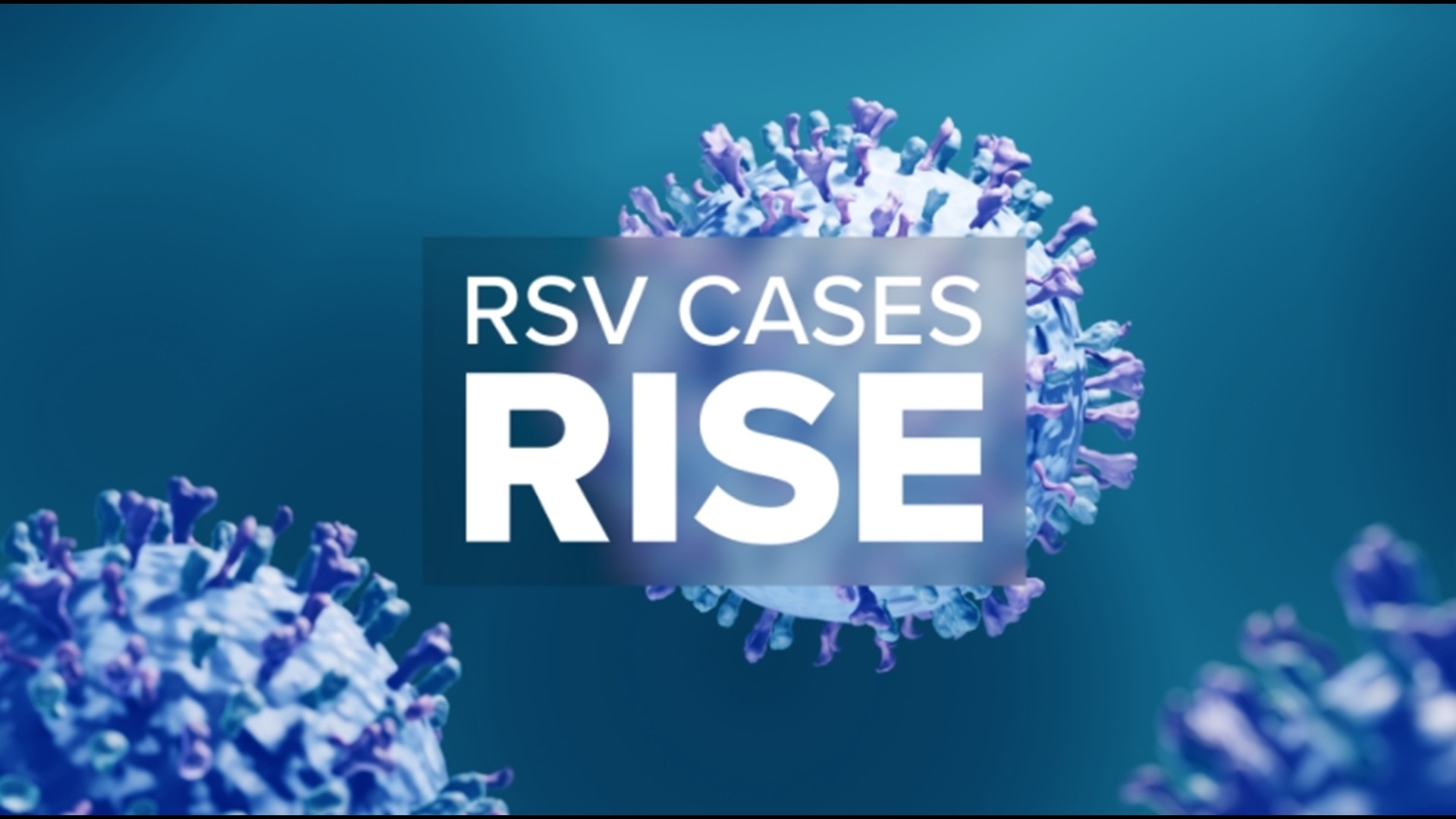Rsv Symptoms In Adults – Covid 19 and flu are not the only viruses affecting Americans and people around the world. Several viruses and infections can cause severe symptoms, and most of us might not have heard about those viruses at all.
Respiratory Syncytial Virus (RSV) is One of those viruses that are known to cause severe symptoms and impact our respiratory system. If you are also wondering about these diseases and you want to learn about Respiratory Syncytial Virus (RSV), then you are at the right place as we are going to talk about it in depth.
We will start from the basics and progress through the Respiratory Syncytial Virus RSV symptoms in adults and end with the treatment options.
What Is RSV Virus?
Respiratory Syncytial Virus (RSV) is a common respiratory virus that is known to cause mild to moderate symptoms similar to a cold. The virus is also known to attack the lungs and other organs in our respiratory system.
The virus is more common in kids and people above the age of 65, but adults can also experience the infection. You can guess the popularity of the virus is that most kids by the age of 2 get infected with the virus.
Similar to other viruses, healthcare experts believe that people can easily recover from the symptoms of Respiratory Syncytial Virus (RSV) infection without even any medicine or medical assistance.
For precautionary measures, healthcare experts might suggest you consult the treatment options with your healthcare provider. The virus can cause severe infection, and it is also known to cause several deaths each year.
All RSV Symptoms In Adults
Before we discuss the symptoms of the virus, let us remind you that Respiratory Syncytial Virus Infection (RSV) is also known to have an incubation period where the infected person won’t experience any symptoms associated with the virus.
During the incubation period, the infected person will be infectious and much more capable of infecting others. The Centers for Disease Control and Prevention of the United States believe that the Respiratory Syncytial Virus (RSV) has an incubation period of 4 to 6 days.
It means that everyone, including infants, will start experiencing the symptoms of the virus after 4 to 6 days of the incubation period.
The Centers for Disease Control and Prevention of the United States believe that the viruses known to cause flu-like symptoms and self-diagnosis can be a little bit tricky as the symptoms of the virus are going to be similar to the flu Infection.
- Low-grade fever
- Sore throat
- Dry cough
- Running nose
- Congested
- Sneezing
- Headache
- Wheezing
- Decrease in appetite
The Centers for Disease Control and Prevention also believe that these symptoms are not going to appear at once. Most symptoms are going to appear in stages as the viruses are going to progress after the incubation period.
Severe Symptoms of the Virus
Along with the common symptom, the Centers for Disease Control and Prevention also believe that the viruses are known to cause some severe symptoms where a person should seek immediate medical assistance.
If you have been infected with a virus and you are experiencing any of the below-given symptoms, then you should call your healthcare provider right away as these severe symptoms are also known to cause life-threatening conditions.
Respiratory Syncytial Virus Infection (RSV) Is also known to cause severe conditions like pneumonia and bronchitis.
- Severe fever
- Cough
- High pitched wheezing
- Rapid breathing
- Difficulty while breathing
- Bluish color of the skin
Despite the age of the patient, the Centers for Disease Control and prevention suggest everyone be careful when it comes to the Severe symptoms of the virus.
Even though the viruses are known to cause severe symptoms in kids and infants, they can also appear in healthy adults. People who develop severe symptoms will have to go through medical treatment and consume medicine and seek other treatment options.

What are the Causes of RSV Symptoms in Adults?
One of the biggest causes of Rsv symptoms in adults is getting infected with the virus. Health experts around the world believe that there are several ways the virus can enter our bodies.
First of all, the virus can easily enter through our mouth, nose, and ice. As it is an airborne virus, Respiratory Syncytial Virus (RSV) can easily travel through respiratory droplets and infect a healthy human.
For example, if an infected person sneezed around you over your kid, there is a high probability that you both will get infected as the virus can easily travel through the air.
Apart from that, the virus can also spread through direct contact, including handshakes and hugs. The virus is also known to live on non-living things, including countertops, toys, railings, and other objects.
If you ever hear about the spread of a virus nearby your neighborhood and other places, try not to touch anything without using full protection. You can follow the precautionary majors you were following for the infection of COVID-19.
Healthcare experts believe that the person who has been infected with a virus is going to be the most contagious during the first 5 to 7 days. It is also the time of the incubation period of the virus, and you should be very careful during that time.
The virus can spread faster In people who are immune compromised below the age of 2.
Diagnosis and Treatment of Respiratory Syncytial Virus (RSV)
Before we completely wrap our session up, let’s take a quick look at the treatment options for Respiratory Syncytial Virus (RSV).
As the cases of infection are rising at a rapid speed, it has become very important for every parent in the country to learn about the diagnosis and the management of the disease.
Diagnosis
When you first visit your healthcare provider for the diagnosis of the disease, your healthcare expert might use a combination test, including a physical exam, to diagnose the disease.
Usually, healthcare experts are much more capable of diagnosing the condition without even any test, but sometimes laboratory tests become important to rule out any other condition with similar symptoms.
- Your healthcare expert might ask you to take a blood test to check your white cell counts.
- At the same time, a chest X-ray might help your healthcare expert to know about lung inflammation.
Treatment Options
Once your healthcare experts have successfully diagnosed you with the condition, The treatment of the condition should not become a challenging situation.
Usually, healthcare experts suggest everyone go for supportive care, and most patients might not even require any over-the-counter medicine to recover from the symptoms.
Still, your healthcare expert might suggest you go for some over-the-counter medication to reduce the fever. Healthcare experts do not just use aspirin in a child.
That is why you should make sure you are not giving any over-the-counter medication to your kid for the Fever without consulting with your healthcare provider.
Secondly, your healthcare experts might suggest that you get hospitalized if you or your kids start experiencing the severe symptoms associated with the condition.
Even though the chances of severe infection and hospitalization are very low, we cannot rule out the probability, and you should be carefully watching all of your symptoms.
Prevention Of RSV Infection
There are several things you can use to prevent the infection of viruses. Healthcare experts are yet to find any vaccine for the condition, but they have successfully gathered the data to prevent the virus in the first place.
- First of all, you should wash your hands regularly with soap and water for at least 20 seconds to prevent the virus.
- Apart from that, you can also avoid touching your nose or mouth without washing your hands in public places.
- You can avoid having close contact with anyone who is sick or has any symptoms associated with the condition.
- Kindly do not touch any surface in public places without using any issue.
- You should stay home if you are developing any symptoms associated with the condition.
- Kindly try to avoid going into public places or traveling by public transport.
Apart from the above-given guidelines, you can consult about the prevention of the condition with your healthcare provider. The cases of the virus are rising in the United States, and you should do everything in your hands to prevent the infection.
Who is more vulnerable to developing RSV symptoms?
The Centers for Disease Control and Prevention of the United States believed that everyone below the age of 2, above the age of 65, people with chronic medical conditions, and people who have been declared immune-compromised are more vulnerable to developing the symptoms associated with the condition.
